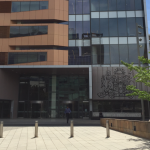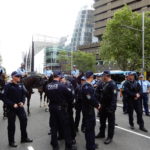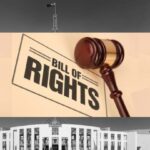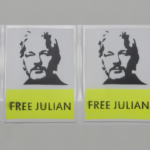No Prison for Child Sexual Abuse? Religious Leader in Hot Water over Controversial Views

Child sexual abuse is an epidemic that has plagued some of the most influential institutions in the country; including churches, schools and major sporting clubs.
And as the Royal Commission into Institutional Responses to Child Sexual Abuse (the ‘RCIRCSA’) enters its second year, the number of complainants who suffered at the hands of adults whom they thought they could trust continues to rise.
The Commission, headed by Supreme Court Justice Peter McClellan, was formed in early 2013 following a recommendation by former Prime Minister Julia Gillard.
Royal Commissions are independent public inquiries which aim to investigate allegations of corruption, impropriety or criminal activity.
Commissioners are invested with broad powers, and can summon witnesses to give evidence, request documents and authorise the Australian Federal Police to exercise search warrants.
Heavy penalties apply for any failure to comply with requests made by the Commission.
Since its inception, the RCIRCSA has conducted hearings all around Australia.
Though much of the spotlight has centred on child sexual abuse by member of the Catholic Church, many other institutions have also come under fire for their handling of child sex allegations.
Earlier this week, the Commission heard evidence from a prominent Jewish leader, Rabbi Feldman, who suggested that perpetrators of abuse should not face prison if they could show that they had reformed..
Rabbi Feldman also came under fire for claiming he was unaware that it was illegal for an adult to touch a child’s genitals.
A complainant known only as ‘AVB’ says that the Rabbi’s comments show that nothing has changed within the community.
AVB alleges that he and nine other children were abused at a Sydney Yeshiva Centre in the 1980’s.
He says that while much of the abuse could have been prevented, senior Rabbis did little to intervene.
While Rabbi Feldman recently resigned in light of his comments, it appears that he is not alone in his blatant disregard for victims of child sexual abuse.
Last year, former Cardinal George Pell caused widespread outrage after he compared the responsibility of the Catholic Church in child sexual assault cases to that of a trucking company, stating,
‘if a driver sexually assaulted a passenger they picked up along the way… I don’t think it appropriate for the leadership of that company to be held responsible.’
Members of child sexual abuse support networks slammed the comments, labelling them ‘outrageous’ and ‘appalling,’ and suggesting that they had been motivated by Pell’s desire to protect the reputation of the church at the expense of victims.
Although numerous allegations of abuse have been directed towards churches and religious groups, criticism has also been levelled against non-religious bodies that are alleged to have played a role in covering up such conduct.
The YMCA, a community organisation which runs sporting and recreational programs for children, faced allegations of ‘systemic failures by management’ after it allegedly hired a person to work in a child care centre who had previously been convicted of several child sexual abuse offences.
What does the law say about child sexual abuse?
Child sexual assault is widely considered to be one of the most serious criminal offences in our society.
The maximum penalties that apply depend on the age of the child and the conduct in question.
Sexual intercourse with a child under the age of 10 attracts a maximum penalty of twenty-five years imprisonment, while the maximum penalty for intercourse with a child aged between 10 and 14 is sixteen years imprisonment.
Where the child is aged between 14 and 16 years of age, the maximum penalty is ten years imprisonment.
However, heavier penalties apply if there are “aggravating” factors involved.
There are nine different circumstances of aggravation under the law.
These include where a child was under the authority of the perpetrator – for example, where the offender was the child’s parent, religious leader, carer or teacher.
The maximum penalty for aggravated child sexual assault on a child under the age of 10 is life imprisonment, and twenty years imprisonment where the child was aged between 10 and 14.
The maximum penalty where the child was aged between 14 and 16 is twelve years imprisonment.
How will the Royal Commission deal with alleged perpetrators?
Despite the heavy penalties that apply under the law, a great deal of criticism has been directed towards the fact that many suspects have not been prosecuted for their alleged crimes.
While many complainants have received substantial compensation from organisations that facilitated or overlooked the abuse, a large proportion of alleged perpetrators have avoided being prosecuted in the criminal courts.
This is partly because, despite their far-reaching powers, Royal Commissions do not have the capacity to prosecute individuals.
They do, however, have the ability to report matters to police and the DPP who do have the power to prosecute.
But investigations into child sexual abuse allegations can be compromised by several factors.
Perhaps the biggest obstacle is time.
Although there is no time limit for prosecuting child sexual assault cases, the fact that an incident occurred years or decades ago often means that much of the evidence has evaporated.
In ‘fresh’ cases, on the other hand, police may be able to extract DNA and other forensic evidence and link it to an alleged perpetrator. It is also more likely that witnesses, CCTV footage and various types of records will be available.
Such evidence can be difficult or even impossible to obtain years or decades after an alleged incident.
Attempts to prosecute suspects have also been hindered by the actions of the institutions within which the actions allegedly occurred.
In many cases, suspects were moved interstate or overseas by the institutions that they represented; and in some cases they were even invested with new identities.
This can pose a major obstacle to investigating and prosecuting bodies.
These issues are further complicated by the emotional trauma suffered by complainants who come forward.
Many complainants have never disclosed their experiences before, and the prospect of giving evidence in court can be daunting.
Complainants may even have been coached on how to conceal incident. In that regard, the Commission has heard evidence that organisations told children that they would suffer serious ramifications if they ever disclosed their experiences, and that they should lie to cover up the incidents if ever asked.
The fact that the abuse was carried out by those in positions of authority and respect adds yet another layer of complexity to these cases, with many complainants experiencing feelings of guilt at the thought of giving evidence that may lead to the imprisonment of someone they looked up to.
This often means that reporting rates of child sexual abuse are much lower than other types of offences.
The problems associated with prosecuting, convicting and sentencing sexual assault offenders are multifaceted and unlikely to be resolved anytime soon.
However, it is hoped that the Royal Commission will offer the victims of child sexual abuse some peace of mind.






